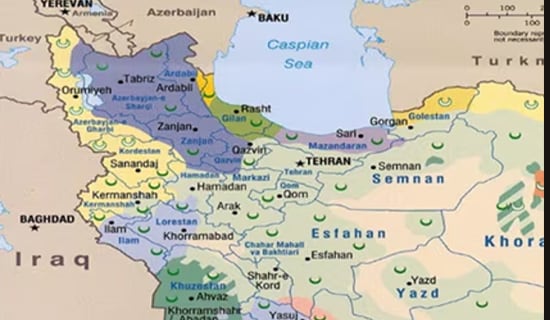In 1950, U.S. President Harry Truman sent the Seventh Fleet to blockade the Taiwan Strait, after the outbreak of the Korean War. He had shifted from nearly abandoning Taiwan to stationing troops in the island. He did so because he was fully aware of its geopolitical importance as the anti-communist frontline.
Today, Taiwan, a small island of great strategic value, is once again called on to be the frontline in curbing the totalitarian Chinese Communist regime.

(Source: Twitter)
The U.S. Needs To Make A Clear Commitment To Defend Taiwan
Taiwan's fate is inextricably linked with that of the U.S. Should Taiwan were lost, the U.S. would lose its most effective means to balance the Chinese Communist Party (CCP). Consequently, the U.S.'s dominant position in the Indo-Pacific region would collapse. From then on, the CCP would face off against the U.S., and its allies in the region. Thus, the CCP would end up with absolute control of the South China Sea, a resource-rich region and the lifeblood of the world's maritime transport – and its external expansion and projection of influence would grow rapidly by leaps and bounds.
The U.S. needs to make a clear commitment to defend Taiwan. Washington should begin to view Taiwan as a strategic ally, on par with the U.K., Canada, Australia, and Israel – or at least with Japan and South Korea.
Beijing's military moves around Taiwan in recent years are, to a large extent, a test of Washington's intention and will to become involved in a war across the Taiwan Strait. Once Beijing judges that the U.S. is unlikely to send troops directly to Taiwan's aid, Chinese President Xi Jinping will have no qualms about attacking the island.
Although the U.S.'s overall military advantage over the CCP is waning, Washington must adopt "strategic clarity" and resolutely curb Beijing's military adventures. If the CCP is to be prevented from becoming powerful enough to eventually supplant the U.S., Washington has no choice but to resolve to use force to defend Taiwan. The battle for the defense of Taiwan may even be ultimate one that determines the future direction of the world.
Since the Mao Zedong era, the CCP has been guided by the principle of "plan well before action" and "don't fight battles in which victory is uncertain." As for Taiwan, Beijing must have made – or must be currently making – plans for a military strike on the island, for how the CCP would rule Taiwan if it were unified with China, and for all possible complications if Beijing's war fails. Such plans are a necessary condition for an armed assault on Taiwan.
Once these plans are finalized, and China intensifies its military activity against Taiwan and manages to influence part of Taiwanese public opinion in favor of unification, a Chinese attack on Taiwan will be inevitable.
Conclusion
On October 21, 2021, President Joe Biden stated that the U.S. has a "commitment" to defend Taiwan.[1] This was seen as a departure from Washington's traditional "strategic ambiguity," and some suggested that it might have been a "slip of the tongue."[2] However, on October 27, at a summit of East Asian leaders, Biden reiterated that the U.S. has a commitment to Taiwan, stating that "in fact, that commitment is rock solid and consistent across administrations. It continues to be the maintenance of peace and stability across the Taiwan Straits and within the region."[3]
Biden's two statements amount to a partial abandonment of Washington's "strategic ambiguity" concerning Taiwan. But they have left unclear how the U.S. would "defend" the island if China invades it. The tripartite China-U.S.-Taiwan game will certainly be fierce. This process has effectively begun, and will be difficult to reverse. The U.S. has no choice but to go all out and do what it can to rein in Xi Jinping's ambitions.
*Chris King is Senior Research Fellow for the MEMRI Chinese Media Studies Project.
[1] Reuters.com/world/asia-pacific/biden-says-united-states-would-come-taiwans-defense-2021-10-22/, October 22, 2021.
[2] Globaltimes.cn/page/202110/1237049.shtml, October 22, 2021.
[3] Reuters.com/world/us/us-concerned-by-coercive-chinese-actions-taiwan-strait-biden-tells-summit-2021-10-27/, October 27, 2021.








